Note: the comments below apply to versions earlier than Frama-C 15 (Phosphorus, 20170501); in Frama-C 15, the Variadic plugin is enabled by default (and its short name is now -variadic).
Solution
- Enable Variadic (
-va) before running the value analysis (-val), it will eliminate the warning and the program will behave as expected.
Detailed explanation
Strictly speaking, Frama-C itself (the kernel) only does the parsing; it's up to the plug-ins themselves (e.g. Value/EVA) to evaluate the program.
From your description, I believe you must be using Value/EVA to analyze a program. I do not know exactly which version you are using, so I'll describe the behavior with Frama-C Silicon.
One limitation of ACSL (the specification language used by Frama-C) is that it is not currently possible to specify contracts for variadic functions such as scanf. Therefore, the specifications shipped with the Frama-C standard library are insufficient. You can notice this in the following program:
#include <stdio.h>
int d;
int main() {
scanf("%d", &d);
Frama_C_show_each(d);
return 0;
}
Running frama-c -val file.c will output, among other things:
...
[value] using specification for function scanf
FRAMAC_SHARE/libc/stdio.h:150:[value] warning: no \from part for clause 'assigns *__fc_stdin;' of function scanf
[value] Done for function scanf
[value] Called Frama_C_show_each({0})
...
That warning means that the specification is incorrect, which explains the odd behavior.
The solution in this case is to use the Variadic plug-in (-va, or -va-help for more details), which will specialize variadic calls and add specifications to them, thus avoiding the warning and behaving as expected. Here's the resulting code (-print) after running the Variadic plug-in on the example above:
$ frama-c -va file.c -print
[... lots of definitions from stdio.h ...]
/*@ requires valid_read_string(format);
requires \valid(param0);
ensures \initialized(param0);
assigns \result, *__fc_stdin, *param0;
assigns \result
\from (indirect: *__fc_stdin), (indirect: *(format + (0 ..)));
assigns *__fc_stdin
\from (indirect: *__fc_stdin), (indirect: *(format + (0 ..)));
assigns *param0
\from (indirect: *__fc_stdin), (indirect: *(format + (0 ..)));
*/
int scanf_0(char const *format, int *param0);
int main(void)
{
int __retres;
scanf_0("%d",& d);
Frama_C_show_each(d);
__retres = 0;
return __retres;
}
In this example, scanf was specialized to scanf_0, with a proper ACSL annotation. Running EVA on this program will not emit any warnings and produce the expected output:
@ frama-c -va file.c -val
...
[value] Done for function scanf_0
[value] Called Frama_C_show_each([-2147483648..2147483647])
...
Note: the GUI in Frama-C 14 (Silicon) does not allow the Variadic plug-in to be enabled (even after ticking it in the Analyses panel), so you must use the command-line in this case to obtain the expected result and avoid the warning. Starting from Frama-C 15 (Phosphorus, to be released in 2017), this won't be necessary: Variadic will be enabled by default and so your example would work from the start.
